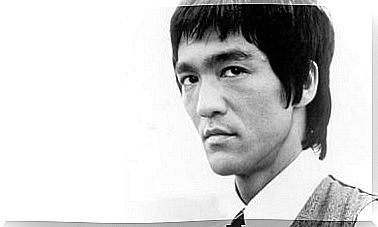The Art Of Negotiating

“The most important thing in a negotiation is to listen to what is not said” (Peter Drucker)
There are situations in which our best result does not only depend on what we decide but also on what another person decides, who in turn may depend on us also to obtain what they want. That is, there is a reciprocal dependence known as interdependence.
In addition, it may happen that by depending on each other to obtain what they want, there is a conflict due to the existence of incompatibility in obtaining results, therefore having a conflict of interest.
For this, an intelligent adjustment resource is necessary that is capable of managing both conflict and cooperation at the same time and that allows us to reach a point of equilibrium as far as possible. What resource are we referring to? To the negotiation process.
WHAT DOES NEGOTIATION CONSIST OF?

When we negotiate we try to obtain something better than what we could already achieve on our own. If we did not perceive it in this way, obviously it would not make sense for us to negotiate. But to achieve this, the conflict of interest present in the situation will have to be resolved in some way.
Alfred Font Barrot affirms that negotiation has something of art and science, skill and analysis, inspiration and reasoning, like everything in life. What we need is to learn to place it in a precise place and time.
Thus, in negotiation we find the existence of a paradox, where two motivations, most of the time contradictory, coexist: the need to cooperate with the other to reach an agreement and the intention that this agreement be the most favorable to us.
Negotiation is therefore a strategy, a plan of action. And as such, through it, each individual will do what they can to induce the other to adopt those decisions that best suit them.
SOME RECOMMENDATIONS
To be a good strategist in negotiations we have to take into account several general aspects such as:
Recognition of a strategic situation. Knowing what situation we find ourselves in constitutes an identification or diagnosis task, through which we will know what the rules of the game will be. Thus, the first thing to identify would be the interdependence characteristic, which can be:
– Pure conflict (one wins and another loses). In this case the strategy would be deductive anticipation of the other’s movements. An example would be when a soccer player shoots a penalty and directs it towards the opposite angle that the goalkeeper expected.
– Pure cooperation (you win or lose at the same time). In this case, the key would be as Barrot indicates in “Think about what the other will think that I will think that he will think if we both know that we want to coordinate with the same purpose.”

– Mixed (you win or lose at the same time, but the result favors one more than the other). And finally, in the mixed interdependence, we will adopt negotiation, since in the first class of interdependence cooperation is not viable and in the second, there is no conflict to resolve, while in the mixed one, both characteristics coexist.
Authorize yourself. Internally authorize yourself to think, analyze, seek information, to say yes but with conditions or in exchange for something else, etc. It is an internal authorization , from oneself, not from others, since this would constitute an act of submission. People who are not capable of defending their interests out of fear or affection for others run the risk of being exploited. While people who make themselves respected, without aggressiveness and without submission, obtain the satisfaction of their interests as well as the consideration of others.
Strategic responses. Being able to anticipate the future decisions of others according to the different possible assumptions and intervene in time to design a structure that is more favorable. That is, foresee what may happen and anticipate the organization so that our interests are protected.
In addition, it must be taken into account that any action or omission of the other party in a negotiation process will have an impact on our expectations, since they are strategic movements, whether they are expressed in words or by any other means. Thus the recognition of a strategic movement of the other is the first step to neutralize it, because we can think about how to counteract it.
Bibliography used:
-Font Barrot, Alfred. (2008) Negotiating with art and getting others to get away with it. Barcelona: Editorial Alienta.









